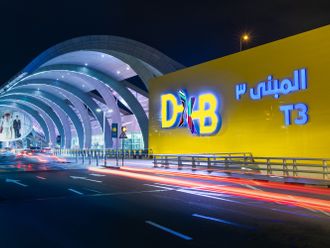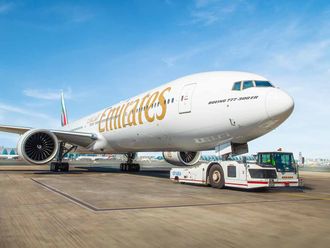Dubai: Keeping in mind the current volatility in oil prices, Emirates Chairman says while the airline has not yet taken a call on whether it would re-start its hedging strategy, oil prices in the region of $70 per barrel and above would be a comfortable area for the airline industry.
Asked if Emirates would reconsider its strategy, having called it off a few years ago, Shaikh Ahmad Bin Saeed Al Maktoum, President of Dubai Civil Aviation and Chairman and CEO of Emirates airline and Group, said: “We haven’t decided as yet if we [will] do it or not, and what percentage [of Emirates’ fuel]. Oil prices in the region of $70-$75 [a barrel] will be acceptable to the entire industry, not just Emirates.”
Emirates scrapped its hedging policy a few years ago after having taken a huge hit on its bottom line owing to oil price volatility.
Over the 2013-2014 financial year, the carrier’s fuel bill increased by 10 per cent to Dh30.7 billion ($8.4 billion), marking its single largest expenditure and accounting for 39 per cent of operating costs. The period from July 2014 to April 2015 saw oil prices drop by 50 per cent.
Brent crude oil prices were up more than 2 per cent in early trading yesterday from the previous close, touching $67.83. Brent prices are up more than 2.5 per cent since the start of May.
Asked by when Emirates was looking at moving to Al Maktoum International Airport at Dubai World Central (DWC), without specifying any time period, Shaikh Ahmad said: “We are going ahead with the new airport in Jebel Ali. But you shouldn’t really underestimate the size of the airline.”
Earlier in the day, Emirates president Sir Tim Clark said that Emirates’ move to DWC might take a little bit longer than 2020 given the scale of infrastructure involved. “It could be somewhere between 2023 and 2025,” he said.











